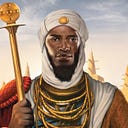African Vernaculars: Influencing the Linguistic Universe
In the symphony of global communication, where does the rich tapestry of African vernaculars fit? Let’s dive into a world where language is more than just a tool for communication — it’s a vibrant, living testament to culture, history, and identity.
Imagine, for a moment, you’re walking through a bustling market in Lagos, Nigeria. The air is filled with a fusion of languages — a melodic blend of Yoruba, Igbo, and Hausa, punctuated by the rhythm of English. This isn’t just a cacophony of sounds; it’s a linguistic symphony. In this symphony, African vernaculars are not just background music; they’re influencing the very fabric of the global linguistic universe.
It’s easy to overlook the power of language in our daily hustle. Yet, every time we engage in a conversation, we’re part of a larger narrative. Language shapes our thoughts, drives our actions, and influences our perceptions. For those of us entrenched in the corporate world, especially on platforms like LinkedIn, language is the bridge that connects us to ideas, opportunities, and each other. So, what happens when we infuse this professional realm with the richness of African vernaculars?
Imagine incorporating a Swahili greeting into your daily emails or learning a proverb in Akan to start your team meetings. It’s a small step, but it’s a powerful one. It’s a step that says, “I recognize and celebrate the diversity of thought and culture.” It’s a habit that keeps the essence of our blog title alive — acknowledging the influence of African vernaculars in our linguistic universe.
Now, let’s stir in some excitement. Consider the awe-inspiring history of these languages. They have survived colonialism, evolved through diasporas, and are now thriving in a digital age. African vernaculars are not static; they are dynamic, evolving entities. They have shaped music genres, influenced literary masterpieces, and are now entering the realm of AI and technology. This isn’t just about language; it’s about resilience, innovation, and global influence.
Picture this: A young entrepreneur from Kenya pitching her startup in Sheng (a blend of Swahili and English) to a panel of international investors. Or a Nigerian writer captivating the world with stories woven in Pidgin. These aren’t hypothetical scenarios; they’re real stories happening now, narratives that underscore our blog title’s significance.
As we conclude, let’s circle back to our central theme: the impact of African vernaculars on the global linguistic landscape. These languages are more than communication tools; they are bridges connecting us to new worlds of understanding, innovation, and cultural richness. They remind us that every voice, every language, has a place in the chorus of global dialogue.
